#father john maloney
Explore tagged Tumblr posts
Text
eucharistia (this is how meat loves meat)
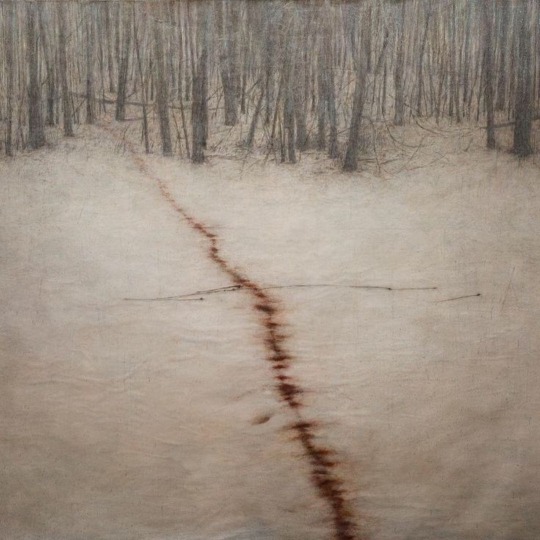
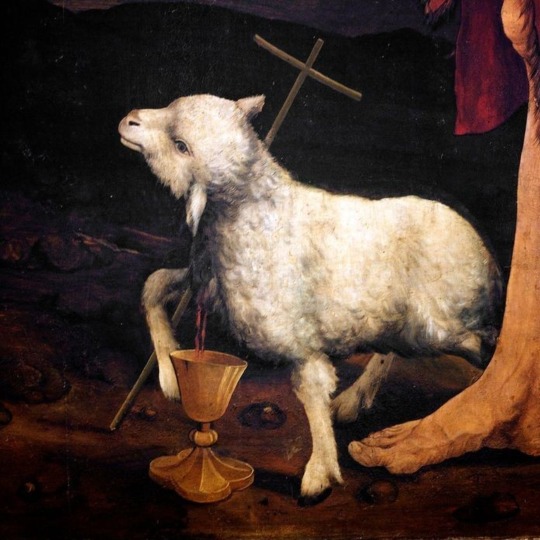
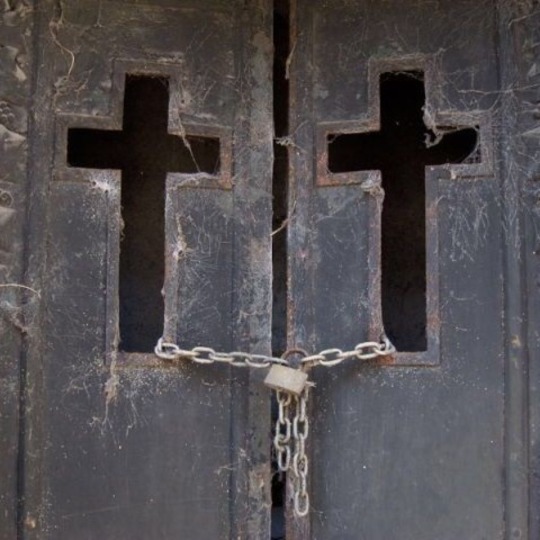
In Rachamps, just before Easy is sent to Haguenau, Eugene Roe brings Babe Heffron to Father John Maloney for his first confession in seven years.
Jesus said to them: "Amen, amen, I say to you, unless you eat the flesh of the Son of Man and drink His blood, you do not have life within you. Whoever eats my flesh and drinks my blood has eternal life, and I will raise him on the last day. For my flesh is true food, and my blood is true drink. Whoever eats my flesh and drinks my blood remains in me and I in him." John 6:53-59, NABRE
read it on ao3
tw: Magical Realism, Horror, Religion as Justification for Unhinged Behavior, Catholicism, Catholic Imagery, Bastogne, Canon Typical Violence, Canonical Character Death, Blood & Gore, Depictions of a Corpse, Cannibalism
---
“Forgive me Father, for I have sinned,” says the boy with hair like copper and a face white as a sheet, kneeling before me. He breathes deep, breathes slow, then looks to his companion who guards the door of this little hide-away. A boy of even paler complexion, who nods in encouragement. A small, minute movement that somehow takes from him a great toll. His dark head bows with the weight of it.
Disturbed by this image, the boy quickly continues: “I haven’t confessed since I was fifteen. I’m twenty-two now. It’s been seven years.”
“That’s alright.” Silence. Nervous, jittery silence. “Go on.”
More silence. Long and dark and cold and damp, the cavernousness of this large and leaky house of God echoing each drip and drop of water across empty space. Empty. Like nobody’s home.
“I’ve done so many things,” the boy says, tipping his face into his hands in despair. “So many, Father.”
“Don’t name them all. We’ll be here all night.” An attempt at good humor. “Just the ones that have brought you before me.”
“Oh, Father,” says the boy, in a whisper that sounds like a wail. “Father. I kept my promise.”
“That doesn’t sound like a sin.”
No, says a voice from the depths of the boy’s eyes. A wailing, lamenting voice, a darkness that threatens to crawl forth from the open wound of his face, and reach out to me with cold, blood-damp hands. No, Father, you don’t understand.
“Make me,” I say, taking his face in my hands and holding it steady. “Babe, tell me what you did.”
His watcher has closed the door on us now. All of us. He stands before it, weight against the wood, hands behind his back. His head is still bowed, upper body almost perpendicular to the stone floor, but his eyes meet mine. Deep blue so dark it’s almost black, staring out from behind a dark brow. Piercing. Waiting. “Go on, Heffron,” he says, voice a deep, unwavering thing. The voice of an Angel. “Don’t be afraid.”
“Don’t be afraid,” I echo. But not for him.
Sprawled against the walls, our shadows continue to flicker.
Babe tries again. “Forgive me, Father. For I have sinned. It’s been seven years since my last confession. My sins—”
Are many. Too many.
“But this one—”
The night he’d gone back for him was clear and bright, the clouds of Bastogne disappearing, momentarily, laying the already barren world of snow white and cold even more bare, absent of the broken shadows of looming trees and the shape of men beyond the mist. Even the looming cold that had settled into their bones seems to have alleviated, somewhat. Still there, but suspended, momentarily, as the fog lifted and Bastogne became just another forest.
But the dread remained. So deep in the marrow of them all that it pulled him out of dreamless sleep; roused suddenly in his shallow grave-bed and forced into the nightmare of this tangible unreality, an endless waking, by the familiar urge to rungotta go get him sir rundangerrun take him with us runrunrunRUN—
And a voice, beyond the light of the moon.
“I felt it, Father. Like… Like I was on one end of the rope, and he was on the other. Pulling me toward him. He showed me where to go, Father, you gotta believe me. I was being led—”
Like a lamb to the slaughter.
No.
Like a pilgrim to his god.
Through snow drifts and trees, down familiar paths made unfamiliar through the sudden clarity of pale moonlight. He found the broken body soon enough. Just where they had left it, earlier that day, but this time devoid of all material things.
The Germans had stripped him, just as he had feared. Taken with them trophies of olive-green pelt, rifle antlers, and silver dog tag bones. What lay in their wake was the naked body of a slaughtered child, lying in the snow, a crater of bone and flesh where his neck should be. Blue eyes upturned to Babe’s face.
Hand outstretched.
Beckoning.
“I touched him, Father. I touched him. And he was warm.”
Not breathing. Warm. Soft. Pliant. Despite hours laying in the snow.
He couldn’t explain it.
But then again, what pilgrim questions a miracle?
“I… I tried to pick him up. I tried.”
Yes. Yes, he had tried. I could see him try. Struggling and panting and finding himself crying, the grief and the desperation manifesting themselves in frustrated tears. They freeze on his cheeks, a record of his suffering. Julian, buddy, c’mon. I gotta get you up. Please. I can’t, I can’t—
But the god is in an immovable shrine. Trapped within and rooted into the snow on the ground.
“All I could lift was his head, Father Maloney. And I held him in my lap, like I used to back when the world made sense.”
Yes. Yes, I could see them there, too. Two boys in basic training, surrounded by pleasant summer heat. Golden light. One with his head in the lap of the other.
Dark hair against pale thighs.
Blue eyes meeting blue.
A smile meeting another smile in a thrilling brush of skin.
God was with them, then.
And it is with the turning of my stomach that I realize, God was with them, here, too.
“What… did you do, Babe?” I ask. I already know the answer. But I must ask.
And the boy looks up at me, open wound for a face, and says with two voices; “I couldn’t leave him there, Father Maloney.”
No. He couldn’t.
He’d brought those unsmiling lips to his mouth, and he’d kissed them one last time. As any pilgrim should.
And then he’d dug his fingers into bone and flesh, and freed his god from his earthly prison.
“I couldn’t—I promised. I said I would. And he told me that I should. He was so warm, Father. And it was so cold. And I was hungry, and Julian always—from the beginning he’d always—when I closed my eyes, I was back there, with him, and he was—”
“Oh, Babe,” I say, opening my arms. Allowing him to fall into them. “Oh, Babe.”
I have long ago accepted that to seek joy in the form of relief of any kind is not a sin. Or at least, should not be. Jesus Christ, Son of God and Man, who enjoyed the taste of wine and bread and the company of prostitutes and degenerates would not consider it a sin. It’s no exception here, where it is common for men to share many things in basic training and in trenches and in Foxholes. Food. Water. Coffee. Things to keep warm. Things to make you feel just a little bit more human. Things to sustain you.
And there are so few things to sustain you, in the frozen hell of Bastogne. In this stomach disguised as a dark forest, a belly to get lost in.
I look toward the door, where the guardian boy stands, still bowed forward (even more so, it seems) and bent at the knees, unable to meet my eyes. Atlas holding up the sky and full of regret. Frozen in commencement of penance, the weight of the world bearing down upon his shoulders.
“There is more to this,” I realize. He does not startle at the sound of my voice, eerily still. “What is it that you aren’t telling me, Eugene?”
In my arms, Babe is quiet. Hitching breaths quick and warm against my throat. Mouth against my rapid beating pulse. Teeth—
“I saw it, Father,” says Eugene, voice ringing clear and deep despite its whispered quality. “I saw them.”
He’d felt Babe stumble out of their foxhole—Spina fast asleep and oblivious to the sudden preternatural quiet and stillness of the world—and followed behind him at a distance, mindful of their vulnerable position but not enough to stop.
“Then there was a moment where I—I couldn’t see ‘im. It got all dark all o’ a sudden, like the moon blinked outta sight. Just for a minute. A kinda dark you can feel.”
Crawling up your skin, looming over you, making all the hairs of your body stand up in response. Like two, large and heavy hands clasping around you. Holding you caged between its palms. An unfortunate butterfly, caught unawares.
Wait, it seemed to say. This is not for you.
“When the dark left and the moon came back, I couldn’t see ‘im.”
But he could hear it.
The wet, moist sound of hands tearing into flesh.
The guttural snarls of an animal tearing into its latest meal.
The crunch of cartilage.
The weeping. The moaning in despair.
In relief.
“I followed it. And I. I saw.”
He pauses. Then looks up at me with pleading eyes, asking for words. Asking for understanding. He does not know, I realize, what to call it. What greeted him in the snow on that fateful night was not any creature he has ever seen or heard of before.
Part-human, part-animal, part-divine. A wretched, blessed chimera. On its hands and knees, hunched over its carrion and feasting, with great relish, upon its steaming insides. The rapidly cooling warmth of fresh death, curling up, up, and away into the frigid, Bastogne night.
“I saw, Father,” Eugene says again. “And I…”
He did nothing.
No, that’s not true.
“I waited. For it to be over.”
And it was soon over.
The chimera could only eat so much, and what he has come to set free has left the altar as soon as the steam had lifted, and once again, the fog had returned, between one blink to the next. A twin to the darkness felt earlier, heavy hands once again clasped about him, but this time, enveloping all of them—voyeur, scavenger, and carrion—all at once.
Eugene took a step forward, afraid to lose sight of him again, and the chimera, startled, lifted its head toward the crunch of snow.
“And that’s when you led him away?” I ask.
Eugene nods. He’d done it when they’d entered here, too. Appearing to me like a grotesque Angel of God in my doorway, two bodies pressed so close together, leaning upon each other for strength, that they became one entity with two heads and eight appendages, illuminated by a column of warm, orange light cutting into the gloom of my assigned billet.
Do not be afraid, one voice had said to its companion, achingly kind. An echo from that night, I imagine, when he’d taken Babe’s hand and brought him back from the brink. Took him away and deposited him into his empty foxhole, melting snow to wipe away the memory of what he had done from his face. Fed him more chocolate, offered him a cup of coffee, to wash the taste from his mouth. Father Maloney, Heffron is here to confess.
“You were right to come to me,” I say to them, easing Babe out of my arms to once again, sit by my feet as I reach out to Eugene, offering my hand. He takes it without much hesitance, lurching forward as if afraid I might recoil from his touch. Gently, I allow him to sink to his knees, and together, both of them look up to me as I stand and dig through my bag for the needed elements. “What a heavy burden you both have shared. What a weight—” I produce what I need, and I turn to them with a smile I hope is kind and reassuring. “It’s alright, now. You may put it down.”
“Father,” says Babe, eyeing the ciborium and chalice in my hands. “Father, what—”
“Let me give you a place to rest,” I tell him, getting on my knees with them, perching the precious relics upon my billet bed so that they may not touch the floor. Crossing myself, I open them, ignoring how both boys scuttle away from me, like rats, who have spent all their lives in the dark, upon the sudden, violent arrival of light. It breaks my heart, how fearful they look upon me, and it strengthens my resolve, once again. Carefully, as I may be during weekly service, I pray over and take into my hands the bread and wine; mere pemmican biscuits from previous rations, and wine I had been given from bombed out churches, mixed with a little water. But in their golden receptacles, they glow with an otherworldly power. True pieces of the Heavenly Host.
I take two of the Flesh into my unworthy hands.
“John Julian was a martyr,” I say, presenting the host to them both and watching as they, cautiously, move toward me, still on their knees, but with their faces tipped toward the light. “A man who had been living, but who’d given his life for the love of you, Babe. His death was swift and quick, there was little pain and little else we could do to keep him with us. It’s those he’s left behind that he ached to comfort—such pain it must have been, for him, to know that you mourned him so deeply.
“And so, he’d asked God and His Angels to hold Death’s hand for far longer, and he called out to you. He was yet Living when you came upon him—how else could he have enticed him to come? How else would he have stayed that warm, that fresh, in order for his body to provide the nourishment that you needed? Therefore, do not be ashamed, Babe. To cannibalize is to feed upon the dead. John Julian was not dead, not while his soul sang to you its precious entreaty.”
Now, he rests, cradled in the soft, warm alcove of Babe’s body.
“He gave his life to you, that you may yet live. Just like our Lord Jesus Christ gave the first Eucharist to His disciples, the night He was to be arrested and taken away from them. He fed them His Living Flesh, so that they may find strength for the coming days. Sustain themselves upon Him.”
Babe comes closer, the tip of his nose lightly brushing the Flesh held in my fingers.
“John Julian was a martyr who has found his final resting place within you,” I press the Sacrament to his mouth, watching it open in anticipation. A gaping maw not unlike a bleeding wound. “Let these Holy Flesh intermingle within you. Let John Julian meet God in your stomach. Turn him into a Saint.”
Babe closes his eyes and his lips close over the Holy communion, his tongue lapping at my fingers.
I let him eat from my unworthy hand.
I watch him swallow. “Your turn, Eugene.”
Eugene looks at me, unblinking. Unfazed. He does not eat from my hand, but instead cups his own to receive it. I place it between his palms and watch him bow his head over it and take it between his teeth. The hard bread makes a loud crunching sound as he crushes it with his molars. He closes his eyes to the symphony of it, and his shoulders fall for the first time since I’ve known him.
“What a weight you have been forced to carry,” I coo, reaching out to cup his face in one of my hands, the other doing the same to Babe. Both boys tip their heads into my hold, and I find myself weeping at how starved they seem to be, for a simple touch that is gentle. Babe, seeing my tears, starts to sniffle with some of his own. “Come, drink the Blood. Let it wash away the taste.”
I tip the wine, carefully, into their open mouths. They drink every last drop.
“There,” I say once they are finished, drawing Babe, who has begun to weep in earnest, to my breast. Against the hollow of my throat, he hiccups, the grief and the relief pouring out of him now that he knows he is allowed. “Oh, Babe.”
“I left him there, Father,” he sobs. “I left him—”
“You did not,” I soothe. “No, Babe, you did not. You came back for him, and now he rests in you—lives in you. This way, he will see home, again. You can bring him home, my boy. He is a part of you now. So long as you are alive, Julian is, also.”
It takes a while, but Babe soon quiets, and hiccupping, sobbing breaths turn even and steady, a sign that he has fallen asleep against me. Peaceful and dreamless, I hope.
Eugene helps me tuck him into my bed, moving the Holy vessels aside to make room for him.
“Thank you, Father,” he says to me, as I replace the sacred items in my pack. I smile at him and he smiles at me from his position on the floor, kneeling by Babe’s head, his hand held tight in the other boy’s grasp, even in deep sleep. “Thank you.”
“Judas ate of the Eucharist.”
This time, Eugene does blink, startled. “… Father?”
“Our Lord Jesus had Judas eat of His Flesh before He revealed him to be the traitor,” I repeat, once again sitting on the floor so that he and I can talk to each other at level. Not once does he tear his eyes away from mine. Brave boy. “He made sure Judas ate so that even when he was apart from Him, betraying Him to the Romans, orchestrating His death, He was always with Judas. Inside him. He loved him very well—perhaps too well. Enough to smother him.” I reach over to tap their clasped hands, gently, with a finger. “There is no position more intimate.”
Eugene’s ears color pink, as if still cold, and I resist the urge to cup my hands around them, so that they may be warm. They’re warm plenty already, I know, and that, at least, makes me smile.
“You are a tenacious one, Eugene Roe,” I tell him, getting up with a groan. He watches me, curious, confused, and I smile at him, amused.
Nobody leaves Bastogne unchanged—undigested, staggering out of that beast’s belly masquerading for a forest. But when one is stubborn, when he is cunning and astute, sure in his footing and determined in his mission, a body trapped could be sustained for long enough that escape is made possible.
“There are many ways a person could be sustained,” I say, running my fingers through his blue-black hair. And, like a cat, he pushes his head into the meat of my palm, affectionate. “You found him, fed him, and you watered him. You made sure to wash it all away, the taste. But shame is a powerful thing, and it almost took him. That would not do.”
Eugene stares up at me. Unflinching.
“And so, you brought him here, to me.”
Because he knew I would nourish him and he would nourish me, gorge ourselves on this story we spin together until hope and faith solidify into truth. He has bargained with Death well; has done so enough times to know how to win. John Julian may have been lost to the violence of Bastogne, but Babe Heffron remains, and Eugene Roe would rather see his own soul rot before he loses him, too.
“The Ignatian way of life dictates that we must strive to see God in all things,” I say, smiling down at him. “Today, you have shown me a Face of God I have not seen before. It brings me comfort, in this world steeped in decay. Thank you.”
Eugene smiles back, a tiny little thing that rapidly disappears when he finally takes his eyes away from me and turns them to Babe, silently contemplating his pale face, deep in sleep.
They’re good boys. I leave them both to each other as I venture back into the bowels of God’s House to search for a quiet place to pray.
---
tagging those who have either helped conceptualize this or who have expressed interest along the way: @bringmefoxgloves @hellofanidea @liebgottsjumpwings @pastexistence
This was supposed to go up on Halloween. But I was on a family trip so I fell behind on editing and putting the final touches in. It's here now, though, and I'm so so proud of it-- something which I could almost never claim about things I've written. I'm very happy it's done, and I hope people enjoy reading it as much as I did writing it.
Finally, I can rest.
#band of brothers#baberoe#babejulian#babe heffron#eugene roe#john julian#fr john maloney#father john maloney#cannibalism tw#cannibalism in bastogne au#this is The Most Catholic Thing I Have Written#estrella_marie
55 notes
·
View notes
Text
one of my favorite background characters from band of brothers: Father John Maloney.
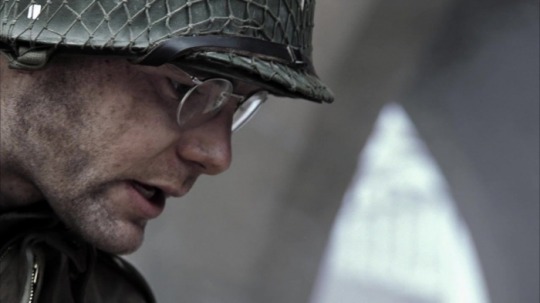
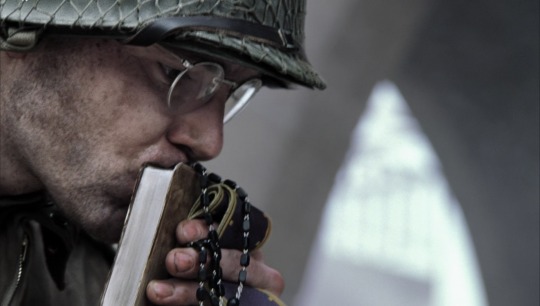
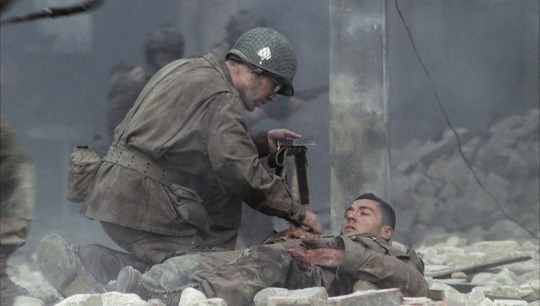
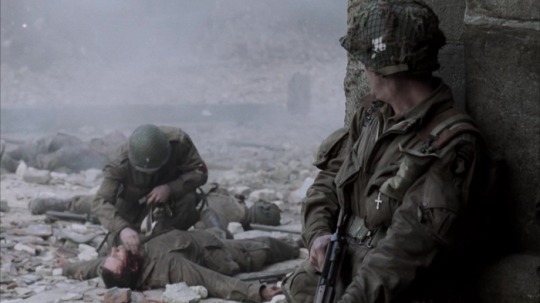
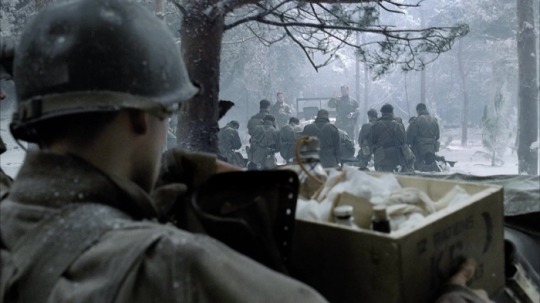
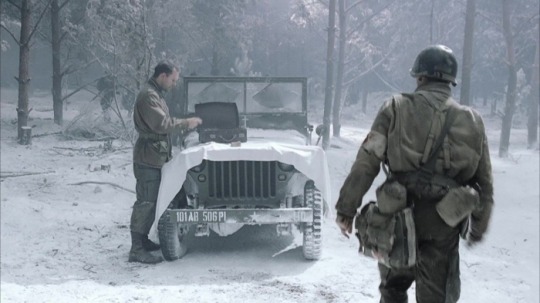
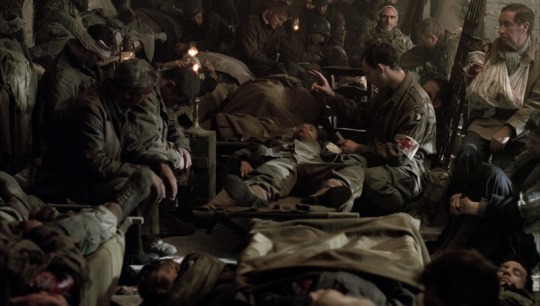
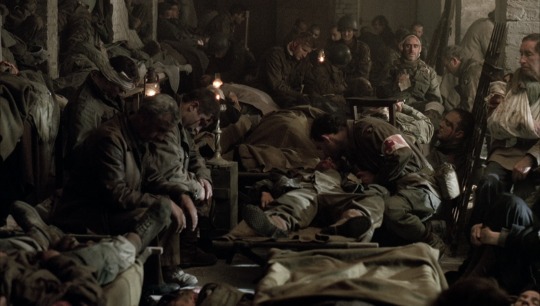
* if anyone has any info on the real life Father Maloney please share!
#father maloney#band of brothers#john maloney#i just realized you can see Skip's rosary in the 4th pic :(
27 notes
·
View notes
Text

On January 2, Toye was hit by a piece of shrapnel from a bomb during a German air raid. His platoon sergeant then sent Toye to the aid station in Bastogne for medical treatment. Later that same day, I looked across the field to our left flank, and there was Joe Toye walking up the road and across the field, his arm in a sling, heading back to the front line. I walked out to meet him and asked, “Where are you going? You don’t have to go back to the line. Take a few days off.” Not Joe Toye. He informed me that he had met another lieutenant at the aid station who was suspected of shooting himself in the hand to escape frontline duty. Joe would have none of that. He was a squad leader and his place was on the line. War had become old to Sergeant Joe Toye, and he was good at it. The lives of his squad depended on his ability to master his craft. In a sense, Toye and his platoon sergeant Bill Guarnere had become what Ernie Pyle termed “senior partners in the institution of killing” and caring for their men. Rather than remain in the rear, Toye hitched a ride with Father John Maloney and returned to the front. Toye told me, “I want to go back with the fellows.” I knew he should not be on the line, but I so admired his devotion to his squad that I stepped aside. Sergeant Joe Toye was an American hero of the first order.
~ Dick Winters
#dick winters#Beyond Band of Brothers: The War Memoirs of Major Dick Winters#band of brothers#quotes#joe toye
20 notes
·
View notes
Text

Full Name: Dallas Ruth Young
Aliases: Dally
Darlin' (by Kayce)
Babe (by Kayce)
Sweets (by Kayce)
Date Of Birth: March 15, 1996
Gender: Female
Species: Human
Affiliations: The Yellowstone Dutton Ranch
Sexual Orientation: Straight
Partner: Roland Maloney (Ex Boyfriend)
Kayce Dutton (Soulmate/Boyfriend)
Occupation: Local & Bar Singer
Family: Nathan Young (Father)
Shonda Young (Mother)
Memphis Young - Dillard (Younger Sister)
Dorian Dillard (Brother In Law/Memphis' Husband)
Remington Dillard (Nephew)
Chance Dillard (Nephew)
John Dutton (Father In Law)
Evelyn Dutton (Mother In Law) (Deceased)
Lee Dutton (Brother In Law) (Deceased)
Beth Dutton (Sister In Law)
Jamie Dutton (Brother In Law) (Adopted)
Tate Dutton (Stepson)
Friends: Kayce Dutton (Best Friend/Love of Life)
John Dutton (Father In Law)
Beth Dutton (Sister In Law)
Rip Wheeler (Beth's Husband)
All Wranglers
Tate Dutton (Best Friend/Stepson)
Memphis Young - Dillard (Best Friend/Younger Sister)
Remington Dillard (Best Friend/Nephew)
Chance Dillard (Best Friend/Nephew)
Jamie Dutton (Frenemies/Brother In Law)
Monica Long (Frenemies/Kayce's Ex Wife and Tate's Mother)
Enemies: Anyone Who Threatens The Ranch Or The Family
Citizenship: America
Status: Alive
4 notes
·
View notes
Text




Band of Brothers screencaps/edits (465/?)
Father John Maloney
February 26 1988: Last jump
#band of brothers#john maloney#father john maloney#Currahee! ♠️#doug cockle#my bob edits#my gifs#my edits
23 notes
·
View notes
Photo


Fallen Angels (L-R): Rory Hayes, Damon Maloney, James Maloney
Rory is the youngest son of Sweet Cacophony’s keyboard player, Roxanne Harmon. He’s followed in his famous mother’s footsteps and has taken up keyboard for Fallen Angels. Rory is a bit of a loner after having his heart broken at university, he tried to date other girls but couldn’t get that one in particular off his mind. Sasha keeps calling, after telling him he was just a one night stand, and he wants to answer her but he’s scared to get his heart broken by her again. Maybe one day he’ll have the courage to either give it a go or tell her where to go.
Damon is the youngest son of Sweet Cacophony’s lead singer Dexter Maloney. Like John Lennon’s son Julian, Damon was blessed with his father’s voice and his talent for playing multiple instruments. Damon can also write songs like his dad, his older brother Luke may look more like their dad, but Damon got all the talent. Luke was content to be roadie to Sweet Cacophony when he turned sixteen, then he roadied for his brother’s band primarily to keep an eye on Damon. Damey was a wild child as a teen, but as an adult he has turned his life around and even found a girl to settle down with.
James is the eldest son of Sweet Cacophony’s drummer Ashton Maloney. He formed the band with his cousin Damon and their friend Rory because he was bored, but when Mandy Mitchell caught his eye, the band didn’t seem all that important anymore. Having fought Damon to win Mandy over, winning was bittersweet. He and Damon didn’t speak for a while which was tough on the band. Now they’re grown up and Damon has a girl of his own, James can juggle Mandy and the band quite happily. He plays the drums like old dad, all three boys decided to emulate their famous parents and it has paid off so far.
Roxy, Dex and Ash offered to help them get their feet off the ground but they asked to try and do it alone, which they’ve managed to do. Fallen Angels seems to be a success so far, and hey it does help to have the surnames of the most famous rock stars on the planet.
6 notes
·
View notes
Text
oh yeah andrew scott michael fassbender james mcavoy jimmy falon iconic before-they-were-famous-cameos sure, but did you know that the army chaplain we see glimpses of in episode 3 and episode 6 is geralt of rivia's iconic voice actor, doug cockle?
#band of brothers#father john maloney#doug cockle#started up witcher 3 on my pc for a bit and was immediately reminded
15 notes
·
View notes
Text
it would've been really interesting to get some more scenes with father john maloney on band of brothers — the perspective of the chaplains anointing the wounded and dead whilst running headfirst into danger, the need to help in any way they can, many of them performing medic duties during the war. recurring to mass while everything else seems hopeless; it's interesting (and heartbreaking) that in the scene where father maloney is tending to the wounded soldiers amidst all the explosions, with muck and malarkey watching the whole thing, you can actually see skip's rosary peeking out of his pocket. “we die now, we gonna die in a state of grace” :(
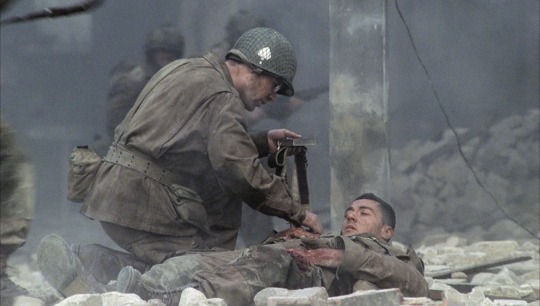
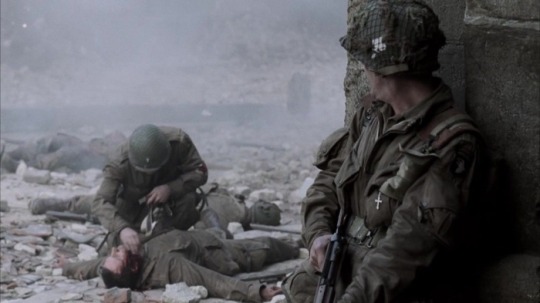
102 notes
·
View notes
Text
Supernatural actors who were on Criminal Minds *incomplete*
George Darrow DJ Qualls - SPN: Garth CM: Richard Slessman (season 1 episode 1)
Timothy Omundson - SPN: Cain CM: Phillip Dowd (season 1 episode 6)
Dameon Clarke - SPN: Jack Montgomery (Rugaru) CM: Christopher Crawford (season 1 episode 7)
Jeff Kober - SPN: Randall CM: Leo (season 1 episode 9)
Mark Rolston - SPN: Alastair CM: Sheriff Hall (season 1 episode 11)
Michael Massee - SPN: Kubrick (Bad Day at Black Rock) CM: Jacob Dawes (season 1 episode 14)
Michael B. Silver - SPN: Martin Flagg (Movie Writer “Hollywood Babylon“) CM: Sam Shapiro (season 1 episode 14)
Roger Aaron Brown - SPN: Joshua (Angel) CM: Warden Charles Diehl (season 1 episode 14)
Robert Curtis Brown - SPN: Father Gil (”Sin City”) CM: Peter Greisen (season 1 episode 16)
Eric Johnson - SPN: Brady (Sam’s college friend/demon) CM: Sean Hotchner (season 1 episode 16)
Jack Conley - SPN: Sheriff Al Britton (”Yellow Fever”) CM: Agent John Summers (season 1 episode 21)
Mary Page Keller SPN: Joyce Bicklebee (Leviathan Real Estate Agent) CM: Katie Cole (season 2 episode 2)
Nicki Aycox - SPN: Meg Masters (season 1) CM: Amber Canardo (season 2 episode 3)
Kayla Mae Maloney - SPN: Leah Gideon (season 5 The Whore) CM: Polly Homefeldt (season 2 episode 7)
Andrew Rothenberg - SPN: Lukcy (Skinwalker “All Dogs Go to Heaven”) CM: Motel Manager (season 2 episode 7)
Samantha Smith - SPN: Mary Winchetsers CM: Helen Douglas (season 2 episode 14)
Jim Parrack - SPN: Agent Nick Munroe (Siren) CM: Paul Mulford (season 2 episode 21)
Steven Williams - SPN: Rufus Turner CM: Captain Al Wright (season 2 episode 22)
Alexander Gould - SPN: Cole Griffith (”Death Takes a Holiday“) CM: Jeremy (season 3 episode 5)
Jim Beaver - SPN: Bobby Singer CM: Sheriff Williams (season 3 episode 7)
John Lafayette - SPN: George Darrow (Crossroad Blues) CM: Dr. Lorenz (season 3 episode 8)
James Otis - SPN: Famine (My Bloody Valentine) CM: Dr. Nash (season 3 episode 8)
Fredric Lehne - SPN: Yellow Eyes/Azazel CM: Jack Vaughan (season 3 episode 12)
Scott Michael Campbell - SPN: Tim Janklow (hunter season 5) CM: Peter Redding (season 3 episode 15)
Dee Wallace - SPN: Mildred Baker (Banshee Episode) CM: Dr. Jan Mohikian (season 4 episode 7)
Courtney Ford - SPN: Kelly Kline (Jack’s mother) CM: Austin (season 4 episode 9)
Mark Pellegrino - SPN: Lucifer/Nick CM: Lieutenant Evans (season 4 episode 10)
Mitch Pileggi - SPN: Samuel Campbell CM: Norman Hill (season 4 episode 11)
Sierra McCormick - SPN: Lilith (Blonde Little Girl) CM: Lynn Robillard (season 4 episode 13)
Mercedes McNab - SPN: Lucy (Vampire "Fresh Blood") CM: Brooke Lombardini (season 4 episode 14)
Spencer Garrett - SPN: Edward Carrigan (God ”A Very Supernatural Christmas” CM: (season 4 episode 21)
Christopher Cousins - SPN: Dr. Garrison ("Bedtime Stories") CM: Tom Barton (season 5 episode 1)
Travis Aaron Wade - SPN: Cole Trenton CM: J. Turner (season 5 episode 4)
Gattlin Griffith - SPN: Jesse Turner (Cambion) CM: Robert Brooks (season 6 episode 9)
Adrianne Palicki - SPN: Jessica Moore CM: Sydney Manning (season 6 episode 13)
Rachel Miner - SPN: Meg Masters (Last vessel) CM: Jane Gould (season 6 episode 15)
Sebastian Roché - SPN: Balthazar CM: Clyde Easter (seasons 6 & 7)
Chad Lindberg - SPN: Ash CM: Tony (season 6 episode 19)
Tricia Helfer - SPN: Molly McNamara (”Roadkill”) CM: Izzy Rogers (season 7)
Robert Englund - SPN: Dr. Robert (season 6 episode 11) CM: Detective Gassner (season 7 episode 19)
Jamie Luner - SPN: Annie Hawkins (hunter season 7) CM: Madison Riley (season 8 episode 13)
Jack Plotnick - SPN: Ian ("It's A Terrible Life") CM: Tanner Johnson (season 9 episode 7)
Jon Gries - SPN: Martin Creaser (crazy hunter) CM: Clifford Walsh (season 9 episode 13)
Tahmoh Penikett - SPN: Gadreel CM: Michael Hastings (season 9 episode 14)
Ashton Holmes - SPN: Ephraim (Rit Zien Angel) CM: Finn Bailey (season 9 episode 17)
Matt Cohen - SPN: Young John Winchester/Michael CM: John Franklin (season 10 episode 6)
Lex Medlin - SPN: Cupid ("My Bloody Valentine") CM: Allen Archer (season 10 episode 14)
Sterling K. Brown - SPN: Gordon Walker CM: Fitz (season 10 episode 19)
14 notes
·
View notes
Text
21 History Ancedotes for my 21st Birthday
So today I celebrate my 21st birthday and I have decided to gift you all with 21 of my favourite historical Ancedotes. Some are funny, some are sad and some are plain bizarre but I hope the make your day 💜
Mary Maloney, an Irish-born suffragette in England followed Winston Churchill around while he was campaigning for a seat in Parliament, drowning out everything he said with a very large bell and calls for him to apologise for his comments on women's rights and suffrage movements.
Clodius Pulcher was a well born Roman noble during the last day's of the Republic. He gave up his Patrician status to become Tribune of the Plebs (an office in which one had to be a Pleb) by being adopted by a much younger Plebian man who became his "father". Clodius was a bit of a riot, sneaking into religious festivals dressed like a woman to sleep with Caesar's wife, building a shrine to Liberty in the ruins of the Conservative Cicero, vetoed the last speech of one of the Consuls (who basically did nothing all year and was apparently going to roast Caesar) and burned down the Senate House with his funeral pyre (the Plebs who loved him literally tearing up the furniture to build his pyre). He was honestly the best fun.
When laying on her deathbed, Queen Caroline of Ansbach turned to her husband George II of England and told him he should marry again. George refused to ever wed again... But added he would have mistresses. Caroline said , likely with a roll of her eyes, "oh my god that doesn't matter."
Florence was a pretty cool city in the Renaissance until Savanorola came to town. He disliked the loose living artists that crowded the city, with their naked pagan gods and rampant homosexuality. He expelled them all with help of the French hoping to make Florence Holy Again. When the Borgia Pope excommunicated him and sentenced him to death, one man in the crowd was reported to have said. "thank God, niw we can return to sodomy." One Floretine man in the 1490s said Gay Rights.
So this list couldn't be complete without an entry of the only American politician I love, Alexander Hamilton who was just a walking entity of sass. I could go on about his sharp sarcasm or his disaster bi vibes with John Lauren's but my all time favourite Alexander Hamilton ancedote has to be this exchange with Thomas Jefferson "There are approximately 1010300 words in the English language, but I could never string enough words together to properly explain how much I want to hit you with a chair."
Caterina Sforza was an Italian noble woman during the Renaissance. She was apart of the powerful Sforza family, which drew many enemies to her. One fateful day at Forli, Caterina's children were snatched as hostages. The besiegers threatened to kill her children if she did not cede the castle. Caterina refused, lifting her skirts and shouted to the besiegers that she had the means to make more children.
Hannibal Lecter's creator Thomas Harris was happy to end his great character's story with the original trilogy. However his publishers forced him to write an unneeded prequel explaining why Hannibal became Hannibal. Thomas Harris agreed lest he lose the rights to his character so he wrote Hannibal Rising, where Hannibal as a young man hunts down the Nazis who ate his sister with a katana.
Nell Gwyn is my favourite mistress of Charles II, mainly because of her sass. Once while trapped in the middle of a riot where Londoners swamped her carriage thinking she was Charles's Catholic mistress. She popped her head out the carriage and told the people "Pray good people be civil. I am the Protestant whore." She also dosed her rival Moll Davis with laxatives in order to free up some of Charles's time and she once flashed her underwear at the French ambassador after asking him why the Franch King did not pay her to spy on Charles because she was with him every night. A true Queen.
Emperor Ai of the Han Dynasty of China once rose from his bed to go do some ruling when he realised his lover, Dong Xian was sleeping on his sleeve. Rather than disturb his lover, the Emperor cut his sleeve off at the wrist to leave Dong Xian nap. Nothing has ever been more romantic than that. Y'all could never.
Princess Margaret the sister of current Queen Elizabeth II was a socialable Princess and often tasked to visit the up and coming music stars of the day on behalf of the Crown. When meeting the Beatles one evening, she noticed George Harrison was acting a little odd. When she asked what was the matter, he replied "We arent allowed eat until you go." Princess Margaret laughed and promptly left so the Beatles could get some dinner.
During the Siege of Jadotsville, Irish soldiers under the flag of the UN were attacked and besieged by local insurgents allied with the Katanga Regime. The insurgents numbered thousands while the Irish only had 158 soldiers, all who were lightly armed. They radioed to their allies assuring them that "we will hold out until our last bullet is spent. Could use some whiskey though".
Napoleon was famous for writing raunchy letters to his wife, the Empress Josephine while he was away. She used to reply with really mundane letters or not at all. She really just could not be bothered with him.
Josip Broz Tito was so fed up with Joseph Stalin sending assassins to kill him, he wrote to Stalin personally to say "If you don't stop sending assassins to kill me. I will send one to Moscow and I won't have to send another." It didn't work but Big Dick Energy.
Successful Roman soldiers returning from war often got to march along in parades known as Triumphs. During this, it was customary for them to sing bawdy songs about their commander. One surviving one about Caesar goes like this "Romans, lock up your wives. Here comes the bald adulterous whore. We pissed away your gold in Gaul and come to borrow more."
Matilda, Lady of the English was a woman so badass that history cannot handle her. She was the daughter of Henry I who left his throne to her after the death of her brother. She was away in France when her father died and her throne was snatched by her cousin Stephen. They battled back and forth for years with neither side ceding any ground. Matilda was once besieged in a castle during a snow storm, with Stephen's men all around her. Instead of fighting her way out. She simply donned a white cloak and walked out of the castle. Just walked out without any of Stephen's men seeing her.
Pedro of Portugal once fell in love with a beautiful lady in waiting called Inez de Castro. For years, they lived as man and mistress, popping out a few kinds. Pedro's dad really did not like Inez and wanted Pedro to find a legitimate wife so he had her killed. Pedro returned home to find the mother of his children dead. Pedro went a little crazy. He had all his father's assassins killed, ripping out their hearts as they had done to him. When Pedro ascended the throne, he demanded the Pope legitimize his children by Inez. The Pope not wanting to upset the King, said he couldn't because Inez was never crowned Queen. Pedro dug Inez up and crowned her as Queen, having all the nobility swear loyalty to her corpse. The Pope had no choice but to agree to his request.
A famously clever general once saved an entire city with an ingenious stragety to sit outside the city waiting for the attacking army to come. The attack had come to fast for the city to ready themselves for a Siege so, the general had to move quickly. He evacuated the city and took his place waiting for the army to come. The enemy forces stopped and took one look at him and bolted, thinking he meant to lure them in one of his famous traps.
Michaelangelo was really badly treated by the Vatican when he was painting the Sistine Chapel. He constantly fought with the Popes over the design and his work, which he was paid peanuts for. Michaelangelo got his revenge in his work, painting the gates of Hell behind the Papal Throne and an angel flipping the ol' fig (the Renaissance version of the bird) toward the Pope's chair.
Peter the Great was not a perfect guy. He kept serfdom as a practise in his kingdom, he had his son tortured to death and he could be an unpleasant guy. But Peter was a dreamer. He wanted nothing more to build a fleet for Russia and bring Russia beyond its borders. Peter took a gap year from ruling Russia to wander around Europe. When he stopped in England, he was granted Leicester House to chill in while he did his shipwright studies. It was here that Peter found a new passion. The wheelbarrow. Cue Peter and his new found English buddies drinking in Leicester House, punching the artwork and rolling each other around in barrels across the house's Great gardens.
Diogenes is hands down a walking shit post. He was a great thinker in Greece during the reign of Alexander but a rather dry, sarcastic wit. He lived in a pithos/a jar because he shunned all vanities and values of society. He trolled other philosophers, attending their debates to heckle them and eat loud foods through them. When Alexander the Great came to fan boy over him, saying that if he were not Alexander he would like to be Diogenes to which Diogenes just said "yeah me too, now get out of my sunlight."
Cosimo de Medici was the son of a Floretine banker with a great knowledge and love of art. Cosimo wished for Florence to release its potentially and join the Renaissance. He hired Filippo Brunelleschi to finsh the Great Dome of Santa Maria del Fiore which had láin unfinished for over a century, a symbol of a failure of ambition. The builders had lost the knowledge of creating a dome so large so it remained unfinished. Despite much opposition from the other nobility and denouncers of the Renaissance, Cosimo's dream of the completion of the dome was completed, making it the largest brick dome in creation at that time. There is nothing like achieving your dreams and certainly nothing like leaving a lasting reminder that screams 'I was right and you were wrong' to stand for centuries.
#Instead of doing shots I decided to give you all a gift#History is our greatest gift#And it's filled with dick jokes and idiots#Anyway happy birthday to me#Go forth and enjoy this great gift#history dump#History Ancedotes#History bites: kinda?
177 notes
·
View notes
Photo
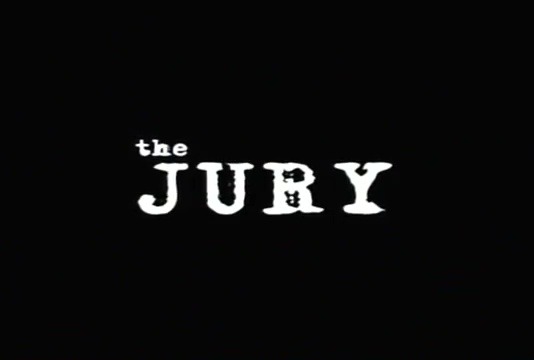
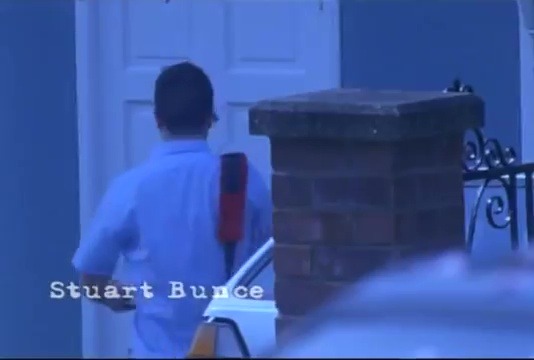
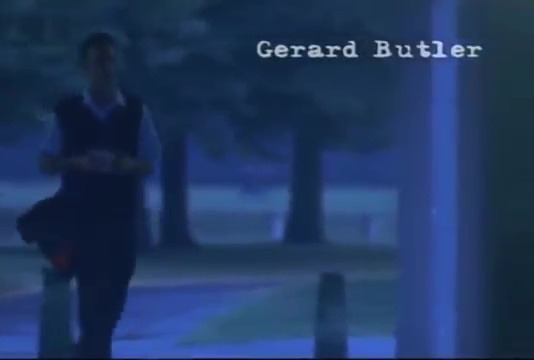
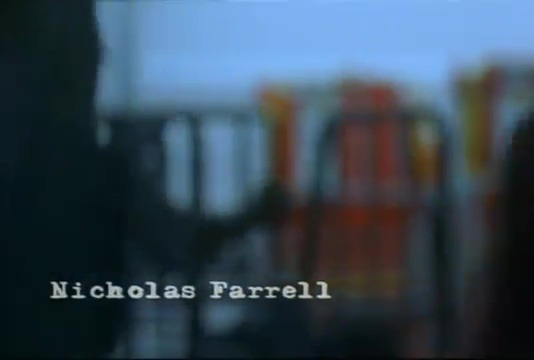
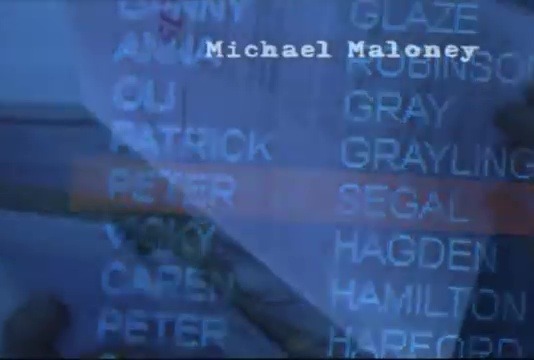
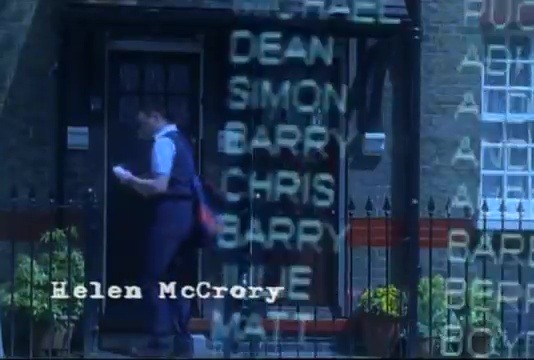

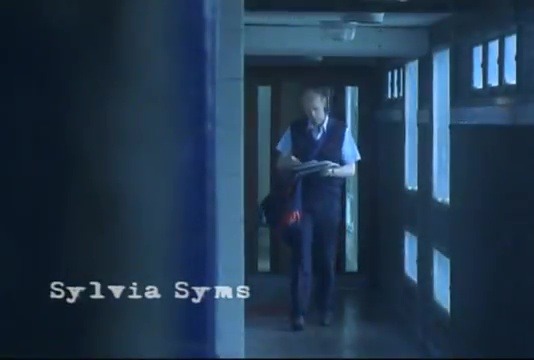
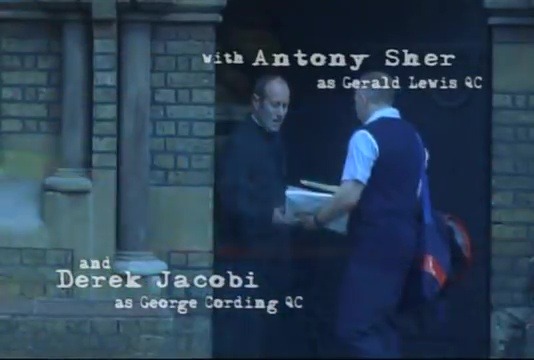

The Jury - ITV - February 17, 2002 - March 18, 2002
Legal Drama (11 episodes)
Running Time: 60 minutes
Stars: (Season 1)
Gerard Butler as Johnnie Donne, Juror #1
Helen McCrory as Rose Davies, Juror #2
Michael Maloney as Peter Segal, Juror #3
Nina Sosanya as Marcia Thomas, Juror #4
Nicholas Farrell as Jeremy Crawford, Juror #5
Sylvia Syms as Elsie Beamish, Juror #6
Paul Reynolds as Warren Murphy, Juror #7
Stuart Bunce as Charles Gore, Juror #8
Gillian Barge as Eva Prohaska, Juror #9
William Hoyland as Hector, Juror #10
Connor McIntyre as Derek Batey, Juror #11
Sarah-Louise Young as Jessica Garland, Juror #12
Antony Sher as Gerald Lewis, Q.C. Counsel for the Prosecution
Sonnell Dadral as Duvinder Singh, the Accused
Derek Jacobi as George Cording, Q.C. Counsel for the Defence
Supporting cast
John Duttine as Mark Waters
Steven Emrys as Mr. De Jersey
Fiona Gillies as Fiona Crawford
James Hayes as Father Gervase
Tim Healy as Eddie Fannon
Tiana Paige Johnson as Joy Thomas
Claire Neilson as Eleanor Colchester
Joanne Pierce as Marion Segal
Billy Scott as John Maher
Shaughan Seymour as the Judge
Jack Shepherd as Ron Maher
Mark Strong as Len Davies
Steve Sweeney as Thomas Haines
Ellen Thomas as Ruby Thomas
Peter Vaughan as Michael Colchester
#The Jury#TV#ITV#2000's#Legal Drama#Stuart Bunce#Gerard Butler#Nicholas Farrell#Michael Maloney#Helen McCrory#Nina Sosanya#Sylvia Syms#Antony Sher#Derek Jacobi#Tim Healy#Jack Shepherd#Mark Strong#Peter Vaughn
6 notes
·
View notes
Text



Band of Brothers screencaps/edits (473/?)
Father John Maloney
March 17: Happy birthday
#band of brothers#father john maloney#john malone#48 hour pass!#doug cockle#my bob edits#my edits#my gifs
17 notes
·
View notes
Text
10 Interesting Australian Novels
The Secret River by Kate Grenville
“In 1806 William Thornhill, an illiterate English bargeman and a man of quick temper but deep compassion, steals a load of wood and, as a part of his lenient sentence, is deported, along with his beloved wife, Sal, to the New South Wales colony in what would become Australia. The Secret River is the tale of William and Sal’s deep love for their small, exotic corner of the new world, and William’s gradual realization that if he wants to make a home for his family, he must forcibly take the land from the people who came before him.” (Amazon.com)
2. The Brush Off: A Murray Whelan Mystery by Shane Maloney
“Murray Whelan is the political advisor to the newly appointed minister of culture, Angelo (“Tell me, Murray, what are the Arts?”) Agnelli, and he’s hanging on to his job by his toenails. On his first day, the disgruntled young artist Marcus Taylor is found dead, drowned in the ornamental moat outside the National Gallery. The police rule it a suicide, or perhaps an accident, but Murray is not so sure. Besides, this ugly incident occurred on Agnelli’s watch, so the heat is on. A born detective despite himself, Murray digs, and the deeper he goes, the more puzzling the mystery becomes. Who is this other painter, Victor Szabo, also dead, unknown in his lifetime and now the darling of the art world, with works fetching crazy prices—funded in part by the government? And what about suave businessman and art maven Lloyd Eastlake, who is whispering financial sweet nothings in Angelo Agnelli’s ear?” (Amazon.com)
3. The Dragon Man (Inspector Challis Mysteries) by Garry Disher
“A serial killer is on the loose in a small coastal town near Melbourne. Detective Inspector Hal Challis and his team must apprehend him before he strikes again. But first Challis must contend with the editor of a local news-paper who undermines his investigation at every turn and with his wife, who is attempting to resurrect their marriage through long-distance phone calls from a sanitarium where she has been imprisoned for the past eight years for attempted murder.” (Amazon.com)
4. Tomorrow, When the War Began by John Marsden
“When Ellie and her friends go camping, they have no idea they're leaving their old lives behind forever. Despite a less-than-tragic food shortage and a secret crush or two, everything goes as planned. But a week later, they return home to find their houses empty and their pets starving. Something has gone wrong--horribly wrong. Before long, they realize the country has been invaded, and the entire town has been captured--including their families and all their friends.” (Amazon.com)
5. True History of the Kelly Gang by Peter Carey
“In True History of the Kelly Gang, the legendary Ned Kelly speaks for himself, scribbling his narrative on errant scraps of paper in semiliterate but magically descriptive prose as he flees from the police. To his pursuers, Kelly is nothing but a monstrous criminal, a thief and a murderer. To his own people, the lowly class of ordinary Australians, the bushranger is a hero, defying the authority of the English to direct their lives. Indentured by his bootlegger mother to a famous horse thief (who was also her lover), Ned saw his first prison cell at 15 and by the age of 26 had become the most wanted man in the wild colony of Victoria, taking over whole towns and defying the law until he was finally captured and hanged.” (Amazon.com)
6. The Rosie Project by Graeme Simsion
“Rosie Jarman possesses all these qualities. Don easily disqualifies her as a candidate for The Wife Project (even if she is “quite intelligent for a barmaid”). But Don is intrigued by Rosie’s own quest to identify her biological father. When an unlikely relationship develops as they collaborate on The Father Project, Don is forced to confront the spontaneous whirlwind that is Rosie―and the realization that, despite your best scientific efforts, you don’t find love, it finds you.” (Amazon.com)
7. Cocaine Blues (Phryne Fisher Mysteries) by Kerry Greenwood
“The London season is in full fling at the end of the 1920s, but the Honourable Phryne Fisher―she of the green-gray eyes, diamant garters, and outfits that should not be sprung suddenly on those of nervous dispositions―is rapidly tiring of the tedium of arranging flowers, making polite conversations with retired colonels, and dancing with weak-chinned men. Instead, Phryne decides it might be rather amusing to try her hand at being a lady detective in Melbourne, Australia. Almost immediately from the time she books into the Windsor Hotel, Phryne is embroiled in mystery: poisoned wives, cocaine smuggling rings, corrupt cops, and communism―not to mention erotic encounters with the beautiful Russian dancer, Sasha de Lisse―until her adventure reaches its steamy end in the Turkish baths of Little Lonsdale Street.” (Amazon.com)
8. The Dry by Jane Harper
“After getting a note demanding his presence, Federal Agent Aaron Falk arrives in his hometown for the first time in decades to attend the funeral of his best friend, Luke. Twenty years ago when Falk was accused of murder, Luke was his alibi. Falk and his father fled under a cloud of suspicion, saved from prosecution only because of Luke’s steadfast claim that the boys had been together at the time of the crime. But now more than one person knows they didn’t tell the truth back then, and Luke is dead.” (Amazon.com)
9. Voss by Patrick White
“Set in nineteenth-century Australia, Voss is White's best-known book, a sweeping novel about a secret passion between the explorer Voss and the young orphan Laura. As Voss is tested by hardship, mutiny, and betrayal during his crossing of the brutal Australian desert, Laura awaits his return in Sydney, where she endures their months of separation as if her life were a dream and Voss the only reality. Marrying a sensitive rendering of hidden love with a stark adventure narrative, Voss is a novel of extraordinary power and virtuosity from a twentieth-century master.” (Amazon.com)
10. Breath by Tim Winton
“On the wild, lonely coast of Western Australia, two thrillseeking and barely adolescent boys fall into the enigmatic thrall of veteran big-wave surfer Sando. Together they form an odd but elite trio. The grown man initiates the boys into a kind of Spartan ethos, a regimen of risk and challenge, where they test themselves in storm swells on remote and shark-infested reefs, pushing each other to the edges of endurance, courage, and sanity. But where is all this heading? Why is their mentor’s past such forbidden territory? And what can explain his American wife’s peculiar behavior? Venturing beyond all limits—in relationships, in physical challenge, and in sexual behavior—there is a point where oblivion is the only outcome.” (Amazon.com)
Bonus 11. That Deadman Dance by Kim Scott
“Bobby Wabalanginy is a young Noongar man, smart, resourceful, and eager to please. He befriends the European arrivals, joining them as they hunt whales, till the land, and establish their new colony. He is welcomed into a prosperous white family, and eventually finds himself falling in love with the daughter, Christine. But slowly-by design and by hazard-things begin to change. Not everyone is happy with how the colony is progressing. Livestock mysteriously start to disappear, crops are destroyed, there are "accidents" and injuries on both sides. As the Europeans impose ever-stricter rules and regulations in order to keep the peace, Bobby's Elders decide they must respond in kind, and Bobby is forced to take sides, inexorably drawn into a series of events that will forever change the future of his country.” (Amazon.com)
4 notes
·
View notes
Photo
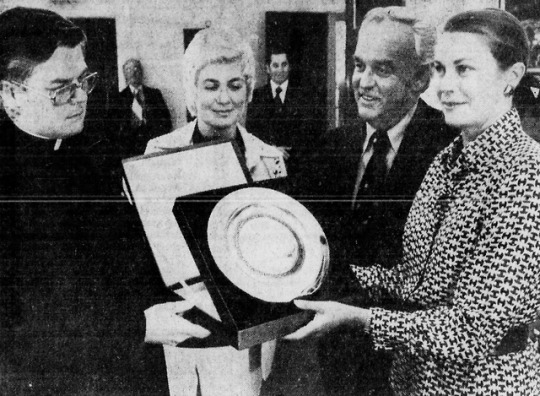
ABOVE: IN HOTEL SUITE at The Barclay, the Rev. Joseph B. Graham and Mrs. Rosemary T. Callan give a silver paten to Prince Rainier III and Princess Grace. The plate commemorates the International Eucharistic Congress, which will open in Philadelphia on Aug. 1. Prince Rainier and Princess Grace will participate in the congress.
The Philadelphia Inquirer - July 12, 1976
Princess Grace, Prince Rainier host 300 at Bicentennial salute
By RUTH SELTZER
Monaco's Sovereign Prince Rainier III and his Philadelphia-born wife, Princess Grace, entertained 300 guests Friday at a cocktail reception at the Philadelphia Country Club in Gladwyne.
It was Monaco's Bicentennial salute to the United States and Philadelphia. It was a beautiful party.
Prince Rainier and Princess Grace welcomed guests. They stood in a receiving line with their three children, Princess Caroline, Prince Albert and Princess Stephanie. Princess Grace's brother, Councilman John B. Kelly Jr., was at the head of the line.
“Doesn't Grace look marvelous!" exclaimed one guest. "She never seems to look a year older!" said another.
Princess Grace wore a lovely white silk pajama ensemble.
There was an informality about the party - relaxed and very pleasant. Hors d'oeuvres - hot and cold - were served. A trio played background music.
We saw Princess Grace and Prince Rainier twice that day. Before going to the country club for the cocktail party, we attended a presentation ceremony in their honor.
At the ceremony, in a Barclay Hotel suite, the Rev. Joseph B. Graham presented a sterling silver paten - a plate for the eucharistic bread - to Prince Rainier and Princess Grace in recognition of the part they play "in Christian life throughout the world."
Father Graham is director of institutional services of the Archdiocese of Philadelphia. Prince Rainier and Princess Grace will participate in the 41st International Eucharistic Congress, which will open in Philadelphia on Aug. 1. On Aug. 2, Rainier and Grace will keynote the plenary session of an all-day conference on family life. The conference will be held at the Philadelphia Civic Center.
At Friday's presentation ceremony was Mrs. Rosemary T. Callan, board chairman of the C & B Corp. of Warminster, Bucks County. There, too, were Saul Lapp, president of the firm, and John Neville, who is also an official of C & B. That firm has produced commemorative silver plates (exactly the same as the one given to Prince Rainier and Princess Grace). The plates will be sold (at $300 each) to help underwrite the expenses of the Philadelphia Archdiocese in hosting the Eucharistic Congress here.
The first plate, number 1, will be presented to Pope Paul VI. It will be accepted in his behalf at the Eucharistic Congress by James Cardinal Knox of Australia, who has been appointed papal legate to the congress.
Silver plates will also be presented to President Ford, Archbishop Jadot (the apostolic delegate to the United States), and John Cardinal Krol, Archbishop of Philadelphia.
Cardinal Krol attended Monaco's party Friday at the country club. He arrived at the same time that we did. For several minutes, Cardinal Krol chatted with Princess Grace and Prince Rainier.
Mr. and Mrs. Richard C. Bond were at the party. He is board chairman of Philadelphia ‘76 Inc., the city's Bicentennial agency. There, too, were City Representative Albert V. Gaudiosi and his wife, Cecelia; Deputy City Representative Anna Marie O'Brien and her husband, John T. O'Brien; William L. Rafsky (executive director of Philadelphia ‘76 Inc.) and his wife, Selma.
Princess Grace's mother, Mrs. John B. Kelly, was at the party. So were Grace's sisters, Mrs. Donald Caldwell LeVine and Mrs. Margaret Kelly Conlan. We talked with Mrs. LeVine (Lizanne) and her husband, Don.
Several of Princess Grace's cousins were there. Mrs. E. Shirley Turner came up from Middleburg, Va., for the party. She is Grace's cousin, Jean.
Princess Grace's cousin, John Lehman, and his wife, Barbara, flew up from Washington for the party. He is deputy director of the U. S. Arms Control and Disarmament Agency.
Mayor and Mrs. Frank L. Rizzo were invited, as were Gov. and Mrs. Milton J. Shapp. They sent regrets.
At the party, we said hello to Fire Commissioner Joseph Rizzo and his wife, Marge (the mayor's brother and sister-in-law). Police Commissioner Joseph F. O'Neill and his wife, Eleanor, were there.
Curtis P. Laupheimer, who is Monaco's consul in Philadelphia, and his wife, Betty greeted guests. So did Alfred J. Laupheimer Jr. and his wife, Jenny. Alfred and Curtis are brothers. Alfred, who now lives in Delray Beach, Fla., is Monaco's consul in Florida.
Mr. and Mrs. Joseph S. Rambo were at the party. Mrs. Rambo (Maree) was Princess Grace's bridesmaid. The wedding in Monaco took place in April 1956. Three months before the wedding, the engagement of Miss Grace Kelly to Prince Rainier III was announced at a luncheon given by her parents, Mrs. John B. Kelly and the late Mr. Kelly, at the Philadelphia Country Club.
At Friday's party, in the same clubhouse, were Trenton banker Mary G. Roebling; Wanamaker president Robert Drew Harrison and Mrs. Harrison; William S. Cashel (president of Bell Telephone Company of Pennsylvania) and Mrs. Cashel; G. Morris Dorrance (board chairman of Philadelphia National Bank) and Mrs. Dorrance; Thacher Longstreth (president of the Greater Philadelphia Chamber of Commerce) and Mrs. Longstreth; Atlantic City Race Track president Robert P. Levy and Mrs. Levy; Philadelphia's City Council president George X. Schwartz and Mrs. Schwartz; Wilmington's Mayor Thomas C. Maloney and Mrs. Maloney.
The Rev. Dr. Leon Sullivan and Mrs. Sullivan were there. So were British Consul-General and Mrs. Denis Richards; Mr. and Mrs. George J. Hauptfuhrer Jr., Jules Lavin; Mrs. William T. Coleman Jr. (wife of the U. S. Secretary of Transportation) and her son, Bill; Mrs. Richard S. Schweiker (wife of the U. S. senator) and her son, Malcolm; Lennox Moak (the city's budget director) and his wife, Helen; U. S. District Judge and Mrs. A. Leon Higginbotham; U. S. District Judge and Mrs. John Morgan Davis; Mrs. Russell Austin; Mr. and Mrs. Clarence Farmer; Mr. and Mrs. John M. Seabrook; Tom Foglietta; Lt. Gen. and Mrs. Willard Pearson; Hillel Levinson (managing director of Philadelphia) and his bride, Caryl; Rear Adm. Wycliffe Toole Jr. (commandant of the Fourth Naval District) and Mrs. Toole; Mr. and Mrs. John Gribbel 2d; and Mr. and Mrs. James A. Nolen Jr.
Wharton Shober, president of Hahnemann Medical College and Hospital, was at the cocktail party. Earlier in the day, Mr. Shober gave a luncheon in Hahnemann's executive suite. Prince Albert, who is now 18, arrived with his uncle, Councilman Kelly. The luncheon, which we attended, was in honor of the U. S. Equestrian Team, on the eve of the team's departure for the 1976 Olympic Games. Prince Albert, heir to the throne of Monaco, presented a commemorative scroll to the team. The scroll, given on behalf of Hahnemann, was accepted by Jack LaGoff, the team's coach.
Last week in Philadelphia was summed up best by Marie Cashel, wife of the president of Bell Tel. Said she: "On Sunday, we went to a luncheon for the President of the United States. On Tuesday, we went to a dinner for the Queen of England. Today we are at a cocktail party given by the Prince and Princess of Monaco. Tomorrow, we'll get back to work in our garden."
#Princess Grace#Prince Rainier#Barclay Hotel#Philadelphia Country Club#International Eucharistic Congress#Ruth Seltzer#Philadelphia Inquirer#Philadelphia#1976#70s#newspaper article
19 notes
·
View notes
Text
I was looking on my phone and found some notes and a theory for Jimmy Casket. I just want to warn that this is a few years old and does not consider any of the more recent P.I.E. videos.
《Anything that looks like this is new and added now as I Re-Read it》
So without further ado, I present a 2 year old theory and notes:
Dipper mod 1- March 9th 2016
Haunted by cardboard friend- Johnny Ghost gets some of Gregory/Jimmy' s flash backs like remembering the cardboard friend name and this confuses Ghost as he tries to connect the links in his brain.
CBF Theory: CBF is a manipulative entity that attacks and feeds off of the weak (This is proved by CBF attacking Ghost without his partner Toast and when he attacked Gregory because he had no one to interact with and caused them both to go crazy)
[Crossed Out] Babby doll hide and seek (gregory) Sep, 26 2013
[Crossed Out] Murder ep 1- Jan, 12 2012
[Crossed Out] Box friend original- Sep, 15 2013
《I think I was going to do a theory that dealt with the dates but Idk.》
Jimmy Casket Theory/Notes:
1. Tommy/Timothy Casket is Jimmy' s father and not Ghost's.
2. Jimmy Casket likes to win whether it's murder, hide and seek, find it so I can eat it, TTT, or just killing someone.
3. I believe that paranormal entities detect Jimmy Casket/Gregory instead of Johnny Ghost.
4. He is ticked off by not winning, blood, being away from Toast for along time, when Ghost is confused/scared of something, annoyed by people, doesn't get what he wants.
--‐----------------------------------------
In Gmod murder siblings 11 "Olaf" at 14:05 Jimmy Casket states that his name is Gregory
In KING BONNIE (Gmod castle mod) at 7:49 Ghost said that he grew up on a farm
[Crossed Out] January 8th 2014 "Johnny Ghost" Gmod 4 player prop hunt 27 Ghost and Toast first appearance
《Time for the Big Theory》
Jimmy Casket the world's most renowned murderer. To solve the theory of who is Jimmy Casket? And what is his backstory? We need to go over a few things first. The 1st thing we need to go over before we start talking about Jimmy Casket is how life and death works in the Gmod/VenturianTale world. Clearly life and death in the Gmod world is not normal like it is here in reality. We live and we die, that's how it is and that's how it will always be. But we can still explain why people come back from the dead. I believe the reason people can come back from the dead is Maxwell Acachalla. Now how does Maxwell have any thing to do with Jimmy Casket? You may ask well, I'm getting there. Let me explain why I think Maxwell has to do with people coming back from the dead first. In a bank robbery with Papa Acachalla and the gang, Maxwell was killed by the Bank Teller after they figured out they were trying to steal money. When Maxwell died he met with an evil and VERY powerful entity. Who this entity is? I don't know. It could be someone we haven't met yet, or will ever meet. It could be Satan himself. Or it could be someone we've seen before, but never suspected them to be evil.
Back to what I was saying, when Maxwell encountered the entity he was offered great power as a ghost and since Maxwell was power driven he accepted the gift. When the Acachalla household encountered Maxwell again there was a curse that made them become immortal, Maxwell didn't mind because he wanted to enternally tourture the Acachallas and especially Papa and his gang as revenge for his death. When Maxwell was starting to get out of hand the Acachallas called P.I.E. aka Johnny Ghost and Johnny Toast to get rid of him. When Ghost and Toast encountered Maxwell they were "killed" by him and that caused Ghost and Toast to come back from the dead.
Now, some people in the universe are also not 100% normal, for example Maloney is an alien and some people have special powers which I think is the reason Spooker and Mr. Sviggles can come back from the dead. Now that we have gone over the reason why I think some people come back from the dead, we can discuss the fact that some people aren't immortal and once they die they die. Some examples of this is John, M9KShotgun, and the ginger kid from "FNAF School Roleplay - Gmod Five Nights at Freddy's Animatronics mod (Garry's Mod)", other small one time characters, and Higgly Diggly Hoogen, yes before you start saying "But even if he gets killed he still keeps coming back" and you're kinda right, BUT he doesn't come back from the dead, one of his many other clones are sent. And the government will never run out as long as they keep cloning him. And you're still probably wondering what this all has to do with Jimmy Casket well I'm about to tell you how.
Remember that video "Gmod Cardboard Friend Mod" where Gregory was hanging out with Cardboard Friend and it slowly turned into a horror movie type scenario? Yeah? Well this is a big part of lore we need in order to solve the mystery of Jimmy Casket. Let's talk about what we know about Gregory and CBF then we'll go into what I think happened. We know that Gregory is a young easily manipulated boy that has gone through a lot. He lost his parents at an early age, he's been alone in a really creepy, old house and his only source or communication is CBF which is a ghost. Now let's get into the theories, I believe CBF is an evil, manipulative entity that is up to no good, and only wants to traumatize and kill people (and possibly take their souls). CBF's target was Gregory, CBF planned to slowly steal his soul by making him go mad, and it worked. In the video when CBF was chasing Gregory around the house it symbolized him killing Gregory, and when Gregory was sending CBF into the sky was him accepting the fact that he was dead, and finally Gregory walking out of the yard was him moving on into the afterlife. Now this is when things start to tie together, because when Gregory died he was faced with the same evil entity that gifted Maxwell great power. The entity offered Gregory something unbelievable.
BUT, before I say what the entity gifted Gregory I want to explain why he decided to gift Gregory and not some other random person. Think, this video was probably a flashback of Gregory's life which was in like the 1980s when technology was not at its peak and paranormal invenvestigating sounded pretty crazy, so there weren't many paranormal investigators. Therefore there was no hard cold proof that paranormal entities can kill people EXPECT for the "Bell Witch Haunting" which states that a poltergeist physically killed (in this case poisoned) John Bell in the 19th Centary. So death by paranormal entity was pretty rare. This caused the evil entity to bestow a gift upon Gregory, a boy that died by a paranormal entity at a young age.
Back to what the entity offered Gregory, the entity gave Gregory the chance to rule over personalities. So we're all correct when we say that Gregory is Jimmy Casket, but this goes a lot deeper than imagined...
Gregory is that insane, evil, devious side of you and your OC's when you/they lose at something, is scared, threatened, or confused. And Jimmy Casket is just one of his characters with their own backstory and a little bit of Gregory in it. Gregory is Samantha gravestone, Max Hunter, Melodie Casket, Amy Reaper, Ethan Dager, Karl Coffin, 《These are all people's "insane" OC's I looked up when originally making this》 Gavin Toast, he is even Antisepticeye and Darkiplier.
I also quickly want to mention that this personality can spread into our world too so to explain to you what I mean I'll tell you about the time I was scrolling through the comments of a story I found on WattPad and the users were talking about how they would sometimes feel the urge to stab, trip, or harm/kill people, like Jimmy Casket does, and that made it clear that the feelings they feel becomes a personality. Another thing to notice is how Jordan changes from the fun, energetic, and goofy person he is to an insane, psycopath...even his eyes change. That's right the addicting, fun, evil personality we all love to use today are one of Gregory's OCs .
And now, here we are nearing the end of the theory but there are still some things up in the air that we need to be solve before we go, Questions like Why is Ghost unaware of Jimmy Casket? And why does he act so strange around CBF? Well...I'm gonna solve these questions right now, Let's first start with why Ghost is unaware of Jimmy's existence. This simply deals with how powerful one's soul is. Johnny Ghost has been through a lot of stuff...too much stuff, this has caused his soul to weaken and decay. Since he has a weak soul Gregory's OC, Jimmy Casket had extra room to grow and fill so he added more of his own backstory in there too, in order to have a balance. This caused Ghost's childhood to get mixed up with the other backstories and whenever Jimmy/Gregory takes control it's over whelming and causes Ghost to black out. How I know this deals with how powerful one's soul is and not something else is shown in "Dipper Mod 1" when dipper's evil persona left his body and tried to stab him with an eraser. Dipper seemed to not care or worry about it and in "Dipper Mod 2" Dipper's evil clone was hanging around the store and Dipper was not worried or scared at all, he may have been a bit annoyed but that's all. That showed that Dipper has a strong soul and is very aware of his evil side the side Gregory controls.
And now to finally explain why Ghost acts the way he does around CBF. Johnny Ghost is a Paranormal Investigator which means he investigates paranormal entities wether it be a level 2 apparition or a demon he tries to get rid of it, and CBF is no exception. The powerful and smart entities notice Gregory and not Ghost so when Ghost runs into CBF Gregory starts to freak out because he is aware that CBF is his killer and CBF knows that Gregory is there and wants to traumatize him even further. Gregory acts as Jimmy Casket and not himself because he wants to try to stand up for himself in a more powerful and safer form. And if any other OC were to come face to face with CBF they would have the same reaction because they are all the same person, Gregory. So this solves the mystery of Jimmy Casket, He's just another one of Gregory's made up personalities that Gregory hides behind. And Gregory is just an unfortunate soul that was chosen to die by the hands of a ghost, which caused him to become the evil, mischievous side of everyone.
-----------‐----------------------------------
That's it! That's a theory that I wrote about 2 years ago and never did anything with.
I used to love Venturiantale and finding this and looking back to a few of their videos was a blast to the past. It was definitely one of the better fandoms I was in when was younger and I still don't regret it one bit.
#venturiantale#venturian#johnny ghost#johnny toast#jimmy casket#paranormal investigators extraordinaire#creepy pasta#p.i.e#pie#gregory casket#cardboard friend#Maxwell Acachalla
19 notes
·
View notes
Text
Donald “Don” George Malarkey

(This is a really long post about Malarkey. Feel free to skim it or read it all.)
The real Donald Malarkey:
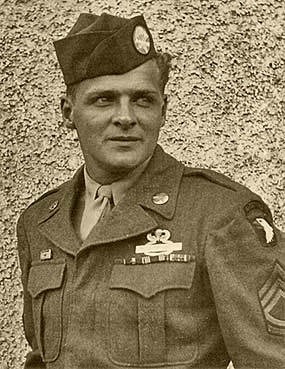
Donald George Malarkey was born on July 31, 1921 in Astoria, Oregon. His mother, Helen, and father, Leo, had four children: Leo who was called John (his middle name), Don, Bob, and Marilyn (who Don called Molly). Leo was about two years older than Don. Bob was about five years younger. Molly was fifteen years younger.
While growing up, Leo never stayed with his children much. He was gone most of the time for work, leaving Don, his siblings, and his mom alone in their cabin. His father was drunk and Malarkey was a high school senior working in a grill. Malarkey recalls his father had looked at him and had yelled, in front of God and everyone, “There’s my no-good son.” Malarkey’s mother was loving on the other hand. She took them to church every Sunday, where Malarkey would become an alter boy (much like Skip Muck, his later best friend). She would take her children berry-picking. He describes these times as the happiest memories he had.
Malarkey learned how to trap and hunt with a bow and arrow from his half-Indian friend Louie Jacobson. Malarkey said that the outside was the place he felt closet to God and not in church. The boys spent most of their time in the woods. Malarkey loved nature, it seemed it loved him back because he got in trouble with a nun for carrying a chipmunk around in his shirt pocket when he was 12.
After that his father sent him to work at a dairy farm. A forest fire sadly raged against him and took that barn. He worked against it till 10:00 PM, trying to put it out until he was taken home. He went to bed, only for an hour again to be awoken again. The fire had shifted and was headed towards their house. His family found themselves in the middle of a raging forest fire. They grabbed the things they wanted the most into their car and a little trailer and drove off to a nearby field that was safe from the fire. In the morning, his house was gone.
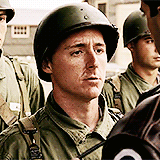
The Great Depression hit around when Malarkey was 8. He started working when money started getting short when he was 15. His father’s insurance business went bankrupt in 1938. Malarkey claimed it was because he trusted people too much. He didn’t want to go after money that was owed him and Malarkey admired him for that.
A month later they lost the house. His brother John moved out to California with relatives. The younger siblings, Molly and Bob, were to move to a replacement cabin with his mother and father while Malarkey was to go live with his grandmother. Malarkey was deeply upset at his loss. He lost the dream of playing Catholic All-State Basketball for Astoria High, he had transferred into Astoria High for his final year of high school. He couldn’t get rides home if he attended the games so he gave up. He was injured and also had to give up football.
His father gave up on a deeper level. He retreated further and further after the bankruptcy. He wanted nothing to do with his family, especially his children. He drank more and more. Helen would stay in the cabin and his father would go out every night. No one knew where he went. Malarkey became the sole aid for his family. He vowed he would never do what his father did; he would never quit.
After his family separated, music became a “serious addiction”. He used to sing for his mother and would go out with his buddies on Sunday campfire nights. Malarkey says that music was a salvation. It made him forget everything else.
Malarkey graduated in 1939 and got a job to afford his dream college, the University of Oregon. He worked at the Pillsbury Flour Mill.. He eventually made enough money to get through college and bought a ‘36 Chevrolet. He bought his own apartment Bernice, his girlfriend, and her father owned the apartment that he bought.
Malarkey enrolled in college in 1941, after eventually selling his car to afford it. He joined the fraternity Sigma Nu and the members eventually persuaded him to break up with Bernice because she wasn’t a part of a sorority. Malarkey sang in their choir while also pursuing a business administration degree. He was required to take the ROTC class. After being sick and missing a test, his instructor flunked him. Malarkey handed his uniform back. He went home and worked as a machinist.
After the bombing of Pearl Harbor, Malarkey had first attempted to enlist in the Marines but was denied. When he was 21, Malarkey was drafted. On September 12, 1942, Malarkey arrived at Fort Lewis and volunteered to be in the Paratroopers. He headed to St. Louis (near the author’s house actually) where he met Robert Rader, Don Hoobler, and William Howell before they were shipped to Toccoa.
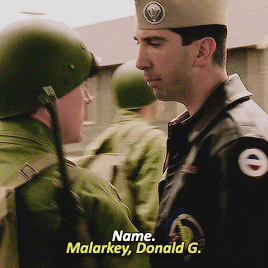
Malarkey was under the command of Sobel during his training. There he met Skip Muck. They bonded over their mutual hate of Sobel, who Muck described as “the devil in jump boots”. They became a team and belonged to the same mortar squad. They ran Currahee side by side and would often get in trouble with Sobel for talking while doing so. They both were adventurous, happy-go-lucky, witty, and loved a good laugh. Their real bond was in the same music: Glenn Miller, Mills Brothers, Harry James, and others. They loved Frank Sinatra’s Moonlight Serenade. They’d go out to the PX and listen to the jukebox there daily. Malarkey was corresponding with Bernice again and Muck had Faye Tanner, both of their girls back home. They would talk about the girls often and would read their letters on a daily. Malarkey says that Muck replaced his family and friends back home as the person he was closest to. They would talk about they’d visit each other after the war and go fishing.
In the 118 mile march in late November, Muck stayed near Malarkey. When Malarkey was so sore he couldn’t walk, Muck grabbed them both food and sat next to Malarkey. He told Malarkey, “No friend of mine crawls anywhere” when Malarkey had attempted to crawl to Mess. When Malarkey told him he didn’t think he could make it, Muck told him “I’ll get you to Atlanta if I have to drag you.” When they crossed into Atlanta, Skip was right there with Malarkey, yelling he’s make it if he had to carry him. Sadly this dynamic duo would not be together long. Skip and Malarkey crossed over to England, only to find out they were being so staged. Winters said the reason he split them up was because they were practically brothers. If Muck went down, either killed our wounded, the other will be of no use and vice versa.
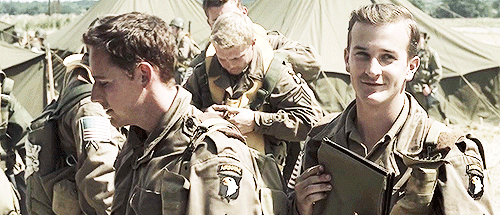
In April in England, Malarkey got a head cold. It got so bad that he had to go to the hospital in London. When he arrived, he had a 105 fever and was given a ton of medicine. He woke up bleeding from his ears and nose. Later he was told that if he hadn’t arrived at that time, the infection would’ve spread to his brain. He was transferred to St. Albans. He was there for two weeks. When the Doctor threatened that Malarkey should not jump out of an airplane and should be removed from the paratroopers, Malarkey told him he’d risk permanent damage to his ears and was discharged back to Easy.
Malarkey jumped on D-Day into Normandy. He connected with Bill Guarnere and Joe Toye near Ste. Mère-Énglise. When they reached the rest of their batallion, Malarkey ran into the German prisoners. One of men asked if the POWS were from Brooklyn, one responded that he was from Portland, Oregon. Malarkey hung back to talk to him. Malarkey and this POW had worked right across the street from each other. He fought with Winters and his small group of men to secure ground against the Germans. Throughout the whole day, Malarkey carried a picture of Bernice in his helmet.
In Carentan, Malarkey witnessed Father John Maloney walking down the middle of the road, holding a cross, and adminstrating last rites for the dying men. Malarkey was wounded in his right hand by shrapnel. He ran to Doc Roe, who without looking informed him it was a Purple Heart wound. He refused it, saying it was not bad enough. After the battle, Winters asked Malarkey to put a wounded German out of his misery, and Malarkey did.
Malarkey went back to Aldbourne, England with Alton More for a short three day break. Easy had jumped with 139 men, it now had 74. In the end, they were joined by the rest of Easy. The men were struggling with physical and mental wounds.Malarkey saved Joe Toye from jumping off a roof by convincing him to come back down.

September 17, 1944 Malarkey jumped easily into Holland. They were treated with open arms by the Dutch. When they reached fighting, Malarkey, Heffron, Guarnere, and Toye stumbled upon Compton. Compton was getting shot in the ass a lot and begged them to leave him and run. They ripped the door off a farm and dragged him with them until they reached a tank to put him on.
When they left for France, the Dutch cheered for them again. They chanted “September 17!” Which was the day Easy has helped liberate them.When they arrived in France, they stayed in Camp Mourmelon. Compton found him and thanked him for the “barn-door ride”. Malarkey convinced Skip to let him gamble for him and earned several times more than what he had been given.
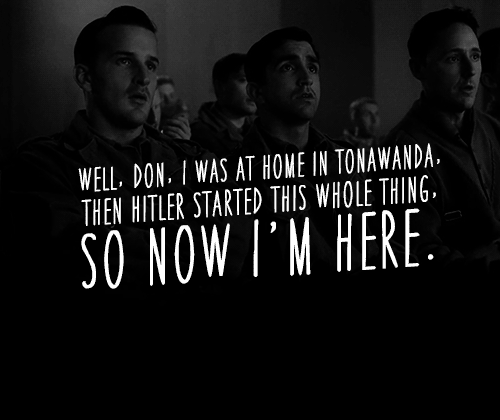
On December 16, Malarkey learned Easy was being sent to Belgium. Muck passed him in another truck and the boys smiled at each other. They reached Foy around December 19 and were orders to stay in the wooded area near Foy. They dug fox holes in the cold, wet ground and slid in. They tried to expand their foxholes but the temperature was dropping too fast.
Father Maloney had a service with the Catholic members of Easy. It was Skip’s idea to help with the spiritual encouragement. Muck, Penkala, Malarkey, and a few others gathered together. Skip and Malarkey had not gotten to see each other since Mourmelon and when the group parted, Malarkey saw the rosary Skip had carried everywhere and told him to stay safe. Skip told him he’d see him again, they shook hands, and separated.
Malarkey became a unit sergeant and started watching out for any of the men that might need a break. After witnessing a man lose both of his feet, Malark began to wear burlap bags around his feet. He didn’t care much for his pride and let the Easy men poke fun at him.
In early January, JoeToye lost his leg after the Germans rattled the forest with heavy artillery fire. Guarnere raced to help his struggling friend and ended up losing his leg as well. Malarkey ran to Joe Toye’s side. Malarkey tried to convince his friend that everything would be okay, his mind playing back to that night he found him up on the roof. Toye simply asked him for a cigarette. Malarkey gave it to him. Joe asked him, “What’s a guy gotta go do to die, Malark?”. Malarkey didn’t have an answer.
After witnessing most of his friends be horribly injured or killed, Buck Compton was sent back to Paris and he said his sad goodbyes to Malarkey. Before he left, he asked Malarkey what the other man thought of him. Malarkey replied, “They think you’re a hell of an officer, Buck.”
On January 10, Skip Muck, Mallark’s best friend, died. A direct hit on his and Penkala’s foxhole killed them instantly. Malarkey lost the man who was a brother to him, but he couldn’t cry, he had to keep strong. Roe broke the news to Malarkey and gave him Muck’s rosary. Winters tried to send him back to recover but Malarkey refused and instead stayed with the men.
Malarkey fought survived the Battle of Foy. He was enraged at the death of another commander and shot a German. He learned the boy was 16. Malarkey kept his records and recalled his face for the rest of his life. Malarkey considers the war had officially ended for him is Bastogne, although it was far from over.
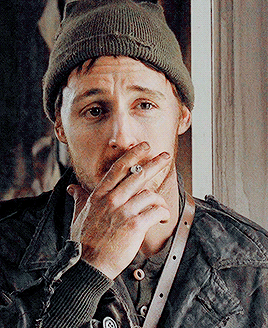
In Haguenau, about 160 miles from Bastogne, Easy received replacements. They regained Webster, who had been out since Holland or Normandy. Webster didn’t notice Malarkey didn’t want to talk much about the men they lost and kept asking him where the others were. Malarkey responded patiently but not happily. He received letters from Toye on how him and Guarnere were recovering but not Bernice, who hadn’t been writing him lately.
In February of 1945, a patrol was sent out across the Moder River and capture Germans. Malarkey was originally supposed to go but he was replaced by another. This was the final patrol of Easy. After three weeks in Haguenau, they returned to Mourmelon, where he wrote to Faye Tanner. They continued to write to each other for a while.
Malark came down with some form of Rhine River Malaria and was sent to an army hospital on Belgium. He stayed there with people who were faking to be sick to stay out of fighting. It made him furious that the men were such cowards. He demanded to return to his unit for days on end until eventually he was discharged.
When the war with Germany ended, Malarkey was by himself in a pub in Belgium. He believed it was just to be him that day when he ran into Frank Perconte. Frank was on his way back to Easy from England and the two men were joined by Burr Smith, also returning back to Easy. These men spent the victory day with each other, leaving Malarkey feeling a bit better.
In Mid-May the three returned to Easy. They had missed the capture of Hitler’s Eagle’s Nest, but still got a few things. They all believed they were to be sent home but the war had not ended in Japan. It was believed that 101st Airborne would be sent to the Pacific theater. If they were to be shipped to the Pacific, they would all get 21 days in the states. They moved to Austria where they swam, boated, and enjoyed the warm weather. At this point, Malarkey had seen 177 days of war.
At Kaprun, Winters offered Malarkey a position as a technical adivsor in Paris. Malarkey took it eagerly and Winters offered to drive him to the airport. They had stopped once before the airport, where they met Sobel. He commented that Malarkey had obviously been doing things. Malarkey writes about the famous “we salute the rank, not the man” incident and says that by the end of the war he had an odd respect for the man.
Malarkey was discharged on November 25, 1945. He spent three days after discharging with Bernice, who had come to see him. He did not go meet Faye Tanner, out of fear he might disrespect Skip by falling in love with her. He got a salute from the premier tenor of the New York Metropolitan Opera, Lauritz Melchoir, which made him feel extremely proud of himself. He returned home in time for Christmas.
Malarkey at the age 24 started college at the University of Oregon again. Although he tried his best to make his life the same again, Malarkey suffered from after affects from the war everywhere he went. A car backfiring sent him ducking for cover, saw Toye and Guarnere wounded again, couldn’t sleep, couldn’t concentrate, or imagined a German bayoneting him. He didn’t tell anyone about his struggles. He took a photo he had of Easy and marked every man that had died or been severly wounded. There were 34 KIA and 61 wounded. Every time he looked at that photo, he suffered from survivor's guilt.
In March he broke up with Bernice. Later he met a girl named Irene Moor. They fell in love. Malarkey proposed to her around Easter by planting a ring in an Easter egg in her basket. They married and had one son and three daughters. His father would die in 1955 and his mother in 1965. Bernice went on to be a famous singer.
Malarkey never returned to normal. He hated the winter and tried to drink the months away. He became closer with Joe Toye over drunk phone calls. While living in Portland, at age 60, he drove home during a snow storm. He was depressed and had been out drinking and was driving toward Mount Hood, where there was a thousand foot canyon he planned to drive off of. He wanted to be buried in the snow, “like Skip had been buried in that snowy foxhole”. He talked himself out of it and told himself he’d never quit.
In 1980, Malarkey started attending the reunions and learned he actually had a fear of heights. Malarkey met Faye Tanner at an Easy Company reunion in the 90s, where they both broke down and cried. She’d saved his jump wings and other items.
The series Band of Brothers led Malarkey becoming close with Richard Speight Jr., who played Skip. When Richard had first called to ask questions about Skip, Malarkey hung up on him because he couldn’t take the pain. In 1991, Malarkey visited Skip’s grave for the first time. He did not cry. He returned in 2004 and visited once more. He stopped and pictured Skip and all their moments together. He cried what he called ‘sixty years’ worth of tears’.
Irene died in 2006. Malarkey would go on to public speaking until his death on September 30, 2017.
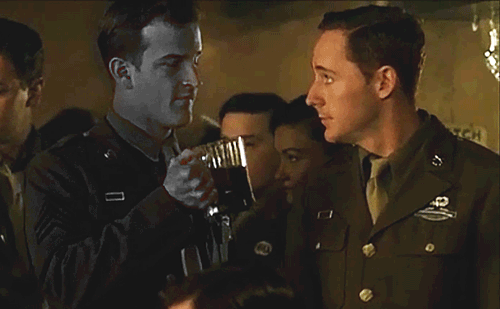
130 notes
·
View notes